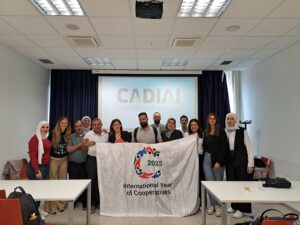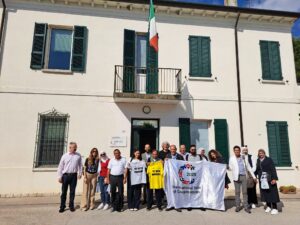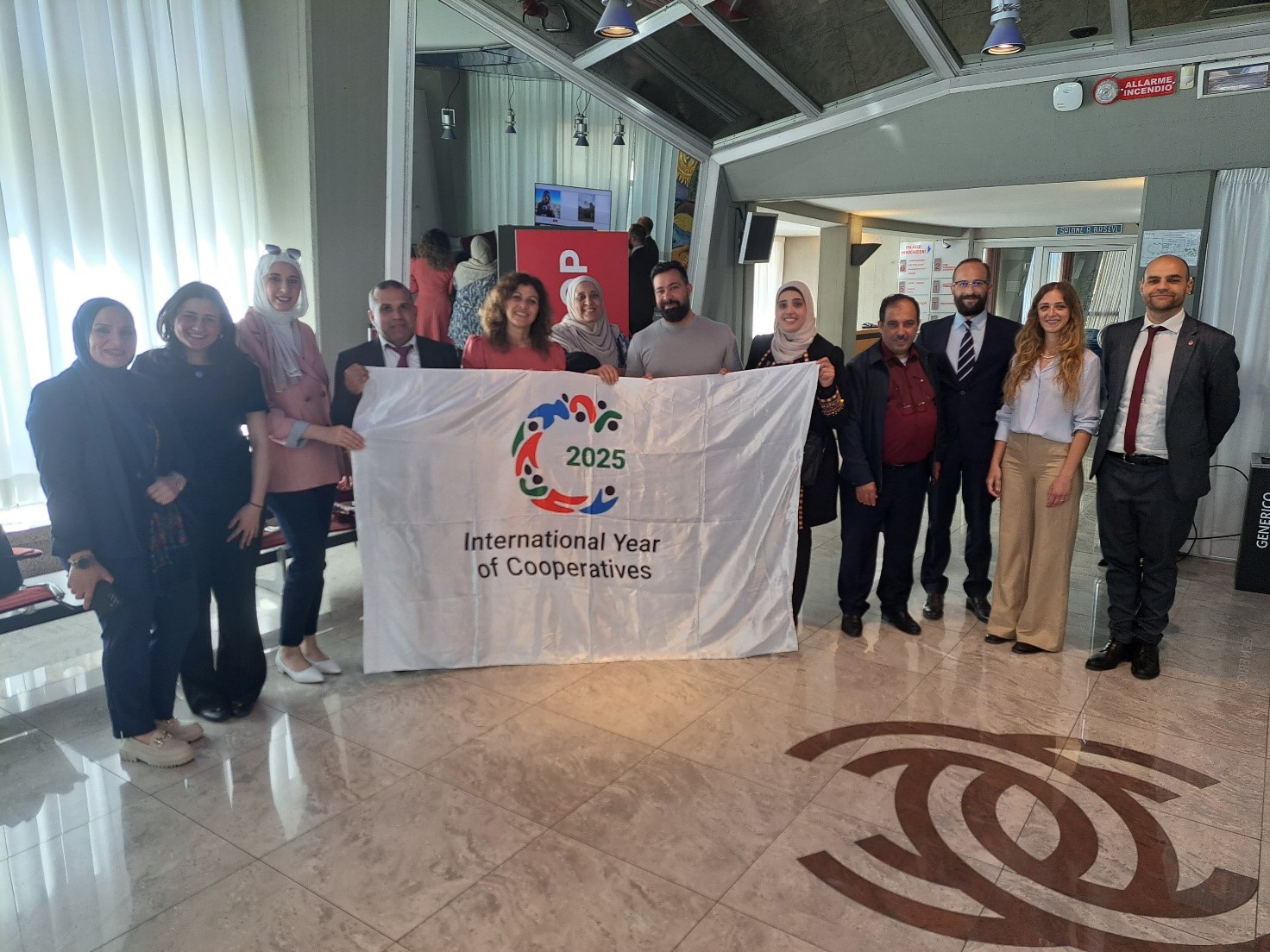From May 6th to 9th, Haliéus and Legacoop, in collaboration with the International Labour Organization (ILO), hosted in Italy a delegation composed of representatives from public institutions as well as the Palestinian cooperative and academic sectors. The aim of this study tour, carried out within the framework of the initiative funded by the Italian Agency for Development Cooperation (AICS) entitled “Be the Impact,” was to strengthen the capacity of the Palestinian cooperative sector through the exchange of experiences and best practices with their Italian counterparts.
The delegation had the opportunity to gain in-depth knowledge of the structure and role of Legacoop, exploring how its support structures, sectoral associations, and operational tools contribute to the cooperative movement. From the very first day, the discussions covered a wide range of topics, Legacoop’s internal Offices, thanks to Michele Morrocchi from Labour Policies Office, and Alssandro Ficicchia from Fiscal Office. As well the support structures of Legacoop, thansk to Valentina Fiore of Coopfond, Director Gianfranco De Simone for Foncoop and Gioria Gasbarro of 4Form, Moreover the delegation has the occasion to learn the sectoral structures thanks to Giovanna Barni for CulturMedia sector, Felicia Gemelli to explain about Legacoop Social and Elena Ghezzi for the Agrofood sector. According to the interest of the delegation, participants had the occasion to learn about the tools to support and promote cooperatives as Coopstartup thanks to Barbara Moreschi.
This introductory stage was key to understanding the organizational and strategic dynamics that make the Italian cooperative model one of the most prominent globally.
The study tour focused on how to address the main challenges facing the Palestinian cooperative movement, including legal and institutional barriers, governance and management issues, and the lack of awareness among the population—especially youth—about the opportunities offered by the cooperative model.
During the mission, participants engaged with the Italian experience—one of the most well-established cooperative ecosystems globally—and explored strategies developed over time to tackle complex challenges in essential areas such as cooperative education, governance, and financing mechanisms. Special attention was given to women’s empowerment, youth inclusion, and digitalization.

Thanks to the support and welcome of Legacoop Emilia-Romagna with the President Daneiele Montroni and Legacoop Bologna thansk to Simone Fabbri, the delegation also visited key cooperative enterprises in the sectors of most interest to them. Among these was the cooperative CADIAI, which showcased the impact of social cooperation through a visit to one of its nursery services, presenting a model that meets community needs while ensuring gender equality and support for marginalized groups. On the topic of digitalization, participants met with Kiez Agency thanks to Luca Vandini, which uses digital technologies to support participatory urban regeneration processes, and Indici Opponibili thanks to Andrea Montusci, which demonstrated how gaming-based technological innovation can be used as an inclusive educational and informational tool. A particularly meaningful visit thanks to Matteo Vignoli was also made to Refresh Academy, a university social business spin-off offering tech training for individuals facing temporary employment vulnerability, funded by private companies. Additionally, the delegation thanks to Claudia Iormetti, explored tools supporting digital training, including the Coo.De. program, aimed at promoting the digital transition in the cooperative world.
Insightful visits were also made to agricultural cooperatives AgriBologna and C.A.B.Ter.Ra, which illustrated the evolution of Italy’s agricultural sector and the strategies used to address contemporary challenges such as climate change, economic sustainability, and the need for production diversification. Both cooperatives demonstrated how these processes can be effectively driven by strengthening cooperative governance, enhancing the role of members, and fostering innovation in agriculture.
The study visit was also a valuable opportunity to explore and imagine potential synergies between the Palestinian cooperative movement and the Italian academic world, thanks to meetings with Roma Tre University and the University of Bologna, which are known for their research and training in the fields of cooperation and social enterprise.
The tour concluded with a wrap-up workshop held at Legacoop's headquarters, offering another opportunity for dialogue and discussion in collaboration with AICS and ILO, focused on sharing Italian experiences and fostering synergies among the various actors involved. The meeting laid the groundwork for strong and lasting partnerships between the cooperative movements of both countries, with the shared goal of promoting sustainable and inclusive development.
Aics Jerusalem link


